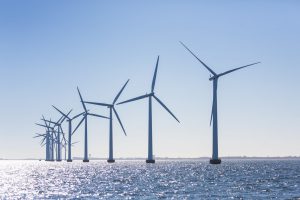Our ocean is changing faster than at any time in human history, increasing uncertainty and risks for billions of people. So far, we have done too little to respond to this global challenge.
Following a call for ocean action by the UN last year, a multisector alliance known as the Ocean Risk Resilience Action Alliance (ORRAA) has formed, dedicated to addressing the risks posed by our rapidly changing ocean.
Urgent action required
Global heating from CO2 emissions is warming the ocean and making it more acidic. Sea levels are rising, storms are becoming more intense, and marine ecosystems that provide essential services from food security to climate regulation are being thrown out of balance. Human pressures ranging from overfishing to plastic pollution and coastal development are also pushing the ocean to its limits.
These changes have wide-ranging implications for coastal communities around the world. Countless lives and livelihoods are at risk, especially among the poorest and most vulnerable in developing countries and small island developing states. By the middle of this century, 800 million people in more than 570 low-lying coastal cities around the world will be at risk of coastal flooding and storm surges – and most are in the Global South.
Ocean risk is a particular issue for Asia, whose population and assets are more exposed than those in any other region, with 147 to 216 million people currently living on land that will be below sea level or regular flood level by the end of the century. China is home to more than 40 million of these people, by far the greatest number of any Asian country. Tropical cyclones are also becoming more frequent and more severe across the region.
The financial magnitude of the risks posed by our rapidly changing ocean requires an urgent response. In the last 10 years alone, insurers have paid out some $300 billion following storm damage to coastal regions, and the costs to governments and taxpayers have been far higher. It’s now estimated that by 2050, the global community will face annual costs of $1 trillion as a result of the combined effects on our coastlines of rising sea levels and extreme weather events.
These projections – and indeed the changes we are already seeing – make climate adaptation and disaster risk management a top priority for coastal nations, particularly in Asia.
Nature-based solutions
It’s impossible to overstate the importance of healthy reefs, mangroves, seagrass beds, saltmarshes, wetlands and other coastal ecosystems to protecting countries that lack the resources to finance relief and recovery efforts. But in Asia, as in other parts of the world, these assets have been degraded. The region’s natural infrastructure urgently needs to be protected, managed and regenerated following decades of neglect and unsustainable development.
The question is not so much what we need to do as how we can unlock the resources to do it. And this is where we come in.
The alliance fosters crucial collaboration between governments, financial institutions, the insurance industry, environmental organisations and other stakeholders to create innovative finance solutions that build resilience to ocean risk.
New approaches are essential: perceived risks, underdeveloped financial vehicles and a lack of a project pipeline have so far restricted significant investments into coastal natural capital. ORRAA is pioneering new ways to unlock and encourage private funding and blended finance in the regions that need it the most.
The alliance’s work is shaped by three priorities. First, its members are building innovative, risk-adjusted and scalable products to change the perceptions of risk associated with investing in coastal natural capital, and increase resilience while delivering a return on investment. These include nature-based insurance, risk pools, sustainability incentives, carbon credit initiatives, green/blue bonds, resilience bonds and debt restructuring.
Key to the adoption of these instruments is understanding the science that underpins ocean-derived risks. ORRAA’s second priority is therefore to accelerate the research and data collection needed to better analyse, model and manage ocean risk.
Finally, the alliance is pushing the global narrative on ocean resilience forwards, informing and advancing ocean risk policy among governments and the private sector, and increasing public understanding.
ORRAA is led by the global insurer and reinsurer AXA and the non-profit Ocean Unite. It is hosted by the Global Resilience Partnership and has a diverse and growing set of partners.
As the impacts of ocean changes become increasingly recognised, so too does the potential of ORRAA’s multi-stakeholder approach to tackling these threats. The alliance was the only initiative tabled that was supported by all G7 members as well as Fiji, India, Mexico and Norway at the 2019 G7 environment ministerial in Metz. Last month, Canada announced at the G7 summit in Biarritz that it is committing crucial funding to ORRAA’s setup.
By bringing together the knowledge, innovation and political will needed to address ocean risk globally, ORRAA represents a critical step towards building much-needed resilience in vulnerable communities and ecosystems around the world.








